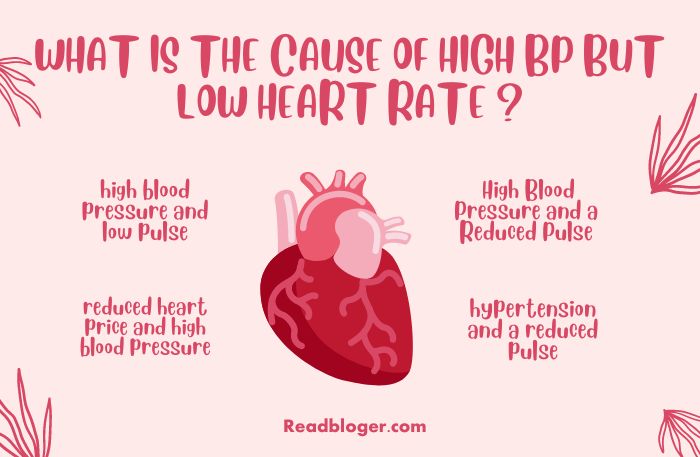High blood pressure and pulse are dimensions that can give crucial information concerning your health and wellness.
Your high blood pressure is the amount of pressure that your blood is placing versus the wall surfaces of your capillary. Blood pressure is considered high BP when it is above 130/80 millimeters of mercury (mm Hg). High blood pressure, or hypertension, is an usual problem that affects almost 1 in 2 American grownups.
Centers for Illness Control and Prevention. Facts about hypertension.
Your pulse, also known as heart price, is the variety of times your heart defects per min. A typical pulse while relaxing is in between 60 to 100 beats per min (BPM). A heart price of less than 60 BPM is thought to be slow. A slow-moving or reduced heart rate is clinically known as bradycardia. This problem is common in people while they rest and is also frequently seen in athletes.
What’s the partnership between high blood pressure and low pulse?
To take into consideration how your pulse and blood pressure can impact each other, consider your pulse as an electrical system and your high blood pressure as plumbing.
Your pulse is mostly controlled by electric impulses. These impulses travel via your heart, informing the chambers to beat in time. Exercise, stress and anxiety, worry, and other variables can speed up your pulse. Being less active can reduce it.
This electrical system stimulates the pumping motion that moves your heart’s pipes. When the “pipes,” or blood vessels, aren’t blocked, blood easily flows through them.
If your blood vessels are narrow or have some sort of obstruction, your heart has to either press harder or beat faster to pump blood. This results in hypertension.
When Should I Be Concerned About High BP and a Reduced Pulse?
It’s best to deal with a healthcare professional to assist keep an eye on high bp and reduced (or high) pulse.
For the majority of people, this suggests developing a treatment plan with your doctor if:
- Your high blood pressure is continually more than 130/80 mm Hg
- Your pulse is regularly lower than 60 beats per minute
- Your pulse is regularly more than 100 beats per min
- Regardless of your pulse, if your high blood pressure is higher than 180/120 mm Hg, rest for 5 mins and examine again. If your high BP continues to be elevated however you do not have any other signs, call your doctor.
Manage Blood Pressure Online:
Wellness provides inexpensive and practical accessibility to very certified medical professionals to deal with and handle high blood pressure, as long as you are not having a hypertensive situation.
You can meet your K Wellness doctor from the comfort of your very own home by means of the K Health and wellness application, all while recognizing that you’re getting individualized and experienced treatment.
Just how do you deal with reduced heart price and high blood pressure?
Hypertension and low heart rate are treated differently relying on the reason. Angiotensin-converting enzyme (ACE) inhibitors, calcium channel blockers, and angiotensin receptor blockers may be suggested if you are getting medication for high blood pressure. The issue can be dealt with by interventions such as pacemaker implantation or heart ablation if the reduced heart rate is triggered by extended high blood pressure triggering enlargement of the heart.
Can you have hypertension and a reduced pulse? Is it dangerous?
A high pulse price is commonly because of high BP. Nevertheless, this may alter under particular conditions.
Your heart acts as a pump, distributing blood around your body. The tougher it squeezes, the greater the pressure on your vessels.
If your blood vessels have no blockages, blood moves quickly. However, an accumulation of plaque or narrowing of blood vessels develops resistance that your heart needs to antagonize. This can lead to hypertension.
When your heart is functioning harder to pump blood, your heart rate normally boosts. This triggers hypertension along with a high pulse price.
A high blood pressure with a low pulse price might indicate a medical issue. This can consist of problems such as a concern with your heart’s electrical system or thickened heart walls. Particular medicines and stressful injuries may likewise cause this problem.
Look for clinical assistance if you have high blood pressure and a low pulse. It might threaten and is essential to determine the underlying reason.



